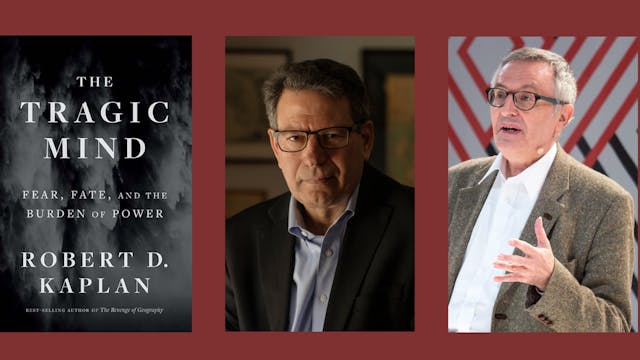Debate: We Should All Go Vegan
History & Social Policy
•
1h 0m
From the McDonald’s McPlant made with a Beyond Meat® patty to Sheese Dairy-Free Cheddar Style, there is a plant-based alternative for almost every food you can think of, making it easier than ever before to go vegan. No wonder the number of people in the UK following a plant-based diet has risen by 40% in the past year. Vegans claim their way of life is better for the environment, human health and animal welfare, but are they right?
Livestock farming contributes 14.5% of human-produced greenhouse gas emissions worldwide. Farm animals belch out massive amounts of methane, one of the most harmful greenhouse gases. They are also extremely wasteful of resources, using up 83% of farmland worldwide while providing only 18% of our calories, guzzling soya and grain that could feed humans more efficiently, and requiring vast amounts of water. As for our health, vegan sports stars such as Venus and Serena Williams and Lewis Hamilton prove that you can be superfit on a plant-based diet, and research has linked vegan diets to lower rates of some diseases. And when it comes to animal welfare, if you’re an omnivore, don’t kid yourself that you’re being ethical by eating only ‘humanely’ reared meat. Livestock on so-called high welfare farms undergo many of the same cruel practices that are inflicted on factory farm animals. If you really care about non-human sentient beings, don’t eat them or any food derived from them.
That’s the argument made by the vegan lobby. But there are many experts who disagree on all counts. Take the environment. Few people realise the high carbon cost of growing crops – some 15-20% of the world’s CO2 output comes from ploughing – and that plants grown for food require vast amounts of fertiliser and pesticides that are derived from fossil fuels. And while vegans like to demonise all forms of animal husbandry, traditional methods of cattle grazing can actually help the environment by fertilising the soil, capturing and storing carbon and increasing biodiversity. And then there’s human health. Not only is it difficult for those on a vegan diet to get enough of certain vital nutrients, but many of those convenient ready-made plant-based foods are packed with emulsifiers and other chemical compounds which have been shown to be harmful to our gut. As for animal welfare, is it obviously more ethical to be a vegan rather than eat fewer products from animals reared to the very highest welfare standards?
Who’s right and who’s wrong?
Up Next in History & Social Policy
-
The Inherent Tragedy Of Geopolitics W...
The great dilemmas of geopolitics are not battles of good against evil, where the choices are clear. They are contests of good against good, where the choices are often painful, incompatible and fraught with consequence. That’s the argument that political scientist Robert Kaplan will be making wh...
-
Disabled Parenting with Eliza Hull an...
‘Being a disabled parent is a rebellious act.’ – Eliza Hull
When writer and musician Eliza Hull was pregnant with her first child, like most parents-to-be she felt a mix of nerves and excitement. But as a disabled person she faced added complexities. Would the pregnancy be too hard? Would people...
-
Is the West Getting China Wrong? With...
China’s power has been growing for decades. A formidable and emerging power on the world stage, the China that most Westerners think they know is an intimidating, authoritarian nation which plans to take over the world. According to leading economist Keyu Jin, this prejudiced take on China is bli...



